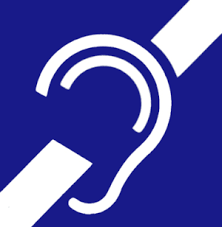 The hearing loss statistics are daunting. The number is sizable – 38 million Americans have some degree of hearing loss. But probably the most startling one is related to older adults – half of those age 75+ difficulty hearing. Of those age 70 and older with hearing loss, only 30% have hearing aids. How is this the status quo? Even though age is the single greatest predictor of hearing loss, many people wait 7 or more years before attempting to address it. That could include purchasing a sound amplification product (PSAP), hearing aid, or the newest amplification category, hearables. The consequences of untreated hearing loss include social isolation, which itself is related to poorer health outcomes.
The hearing loss statistics are daunting. The number is sizable – 38 million Americans have some degree of hearing loss. But probably the most startling one is related to older adults – half of those age 75+ difficulty hearing. Of those age 70 and older with hearing loss, only 30% have hearing aids. How is this the status quo? Even though age is the single greatest predictor of hearing loss, many people wait 7 or more years before attempting to address it. That could include purchasing a sound amplification product (PSAP), hearing aid, or the newest amplification category, hearables. The consequences of untreated hearing loss include social isolation, which itself is related to poorer health outcomes.
Why do older adults wait to address hearing loss? Experts cite denial as the primary reason, followed by perceived stigma of wearing hearing aids, but price may be a factor. Half of those age 75+ have hearing loss typically occurring in both ears, and more likely in men than in women. The median income of households aged 75+ is $32K. Contrast that with the average price (private pay) of today’s best hearing aids is upwards of $2,400/ear. New features like fall detection and artificial intelligence makes these devices differentiated and perhaps appealing for older adults. But at close to $5,000 or more for a sophisticated pair of hearing aids, it’s no wonder that seniors may delay or seek low-cost alternatives. There remains a patchwork of options to help fund the expense. But delay worsens the isolation – and possibly contributes to risk from poorer health outcomes.
Hearing aids are just a piece of the puzzle at overcoming social isolation. For seniors who have delayed acquiring hearing aids – and as a result have become increasingly isolated– the new experience of using hearing aids can be a shock. A positive shock in regard to reconnecting with close family members, but also a shock in understanding what the devices do – and do not – fix. Moving from little or no sound to the noisy environment of stores, restaurants, office buildings and streets requires adjustment, not just the device itself, but also user training and personal expectation setting and accommodation.
Audiologists and hearing care professionals can help mitigate social isolation. Although hearing aids are not covered by Medicare, as of 2017, Medicare Advantage plans, held by 30% of seniors – expected to grow to 47% by 2029 – are beginning to contribute a portion of the cost of hearing aids. Therefore there will be more seniors eligible (and hopefully leveraging) benefits from hearing aids. Further, the initial satisfaction level for hearing aid recipients can be problematic. The role of hearing care professionals is changing and when dealing with older adults, it will involve more work and consideration of the whole person, and the degree to which they have been isolated from others as a result of their hearing loss.
from Tips For Aging In Place https://www.ageinplacetech.com/blog/audiologists-can-help-combat-social-isolation
No comments:
Post a Comment
Note: Only a member of this blog may post a comment.